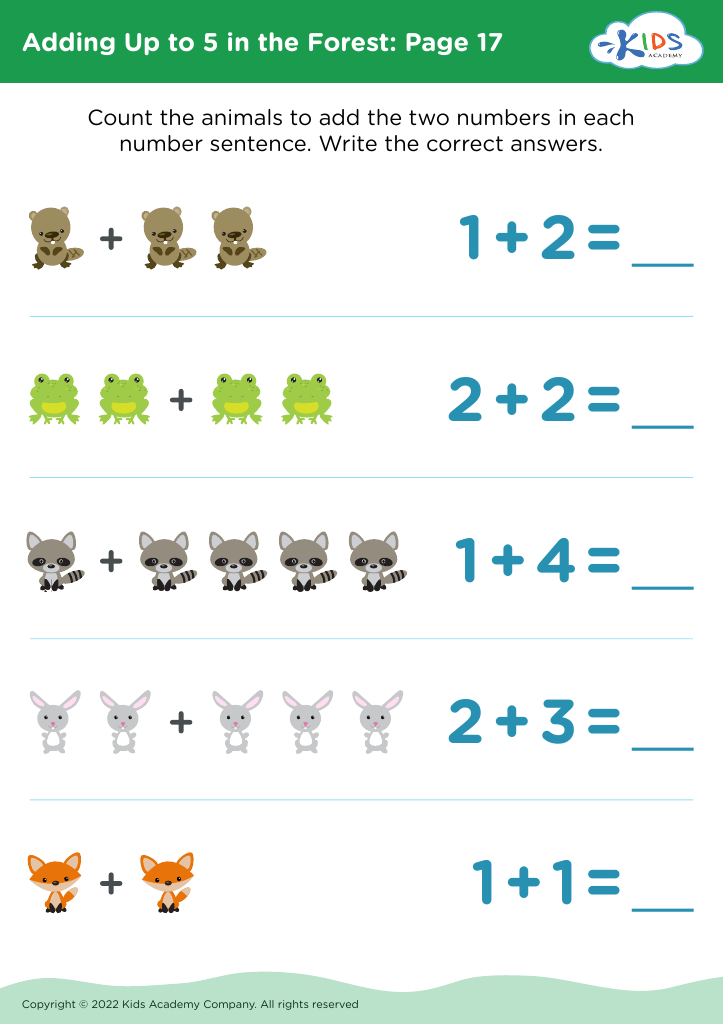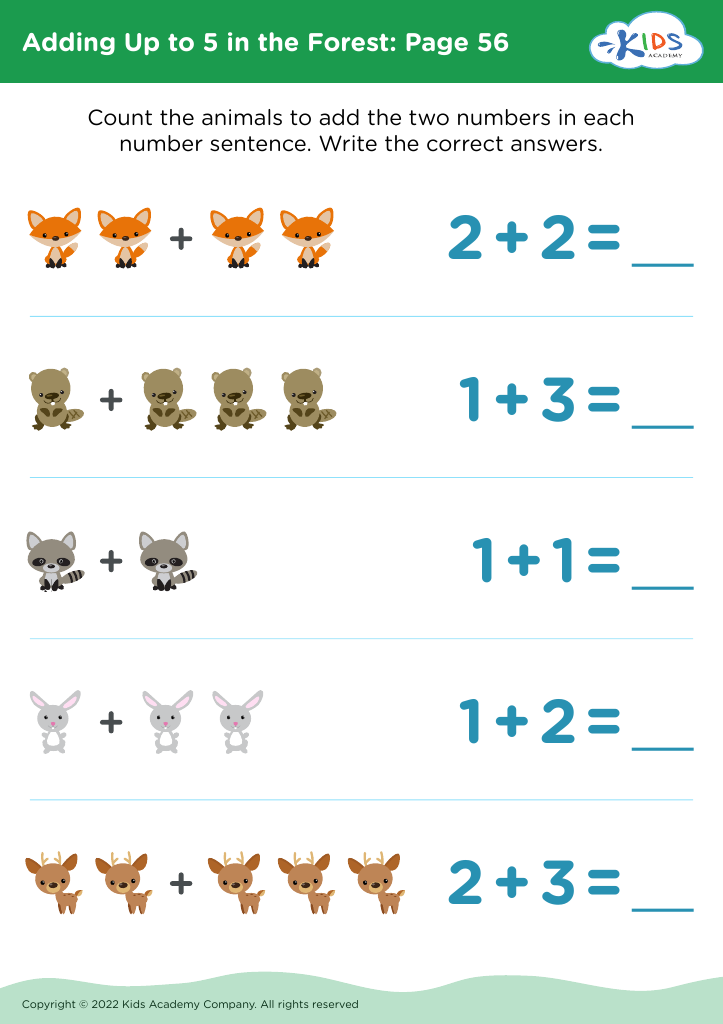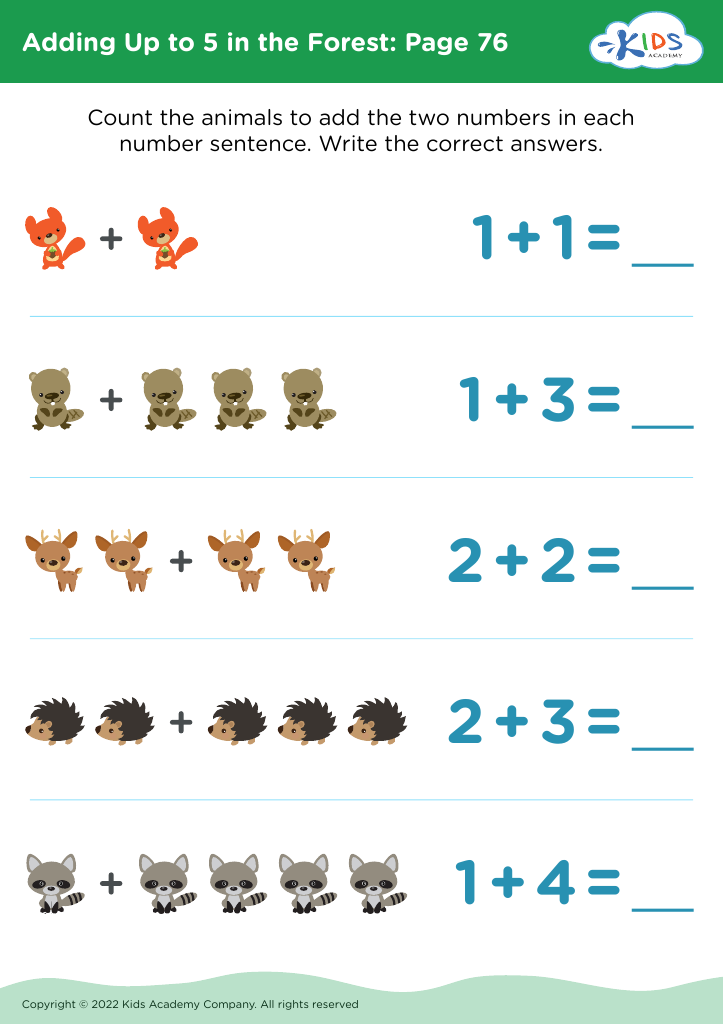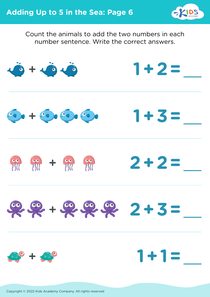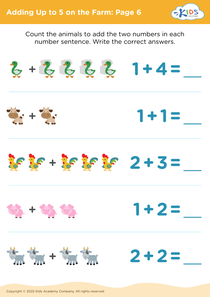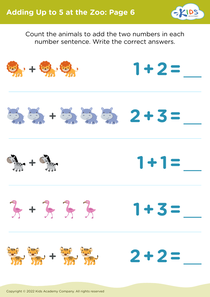Problem Solving Adding in the Forest Worksheets for Ages 4-9
3 filtered results
-
From - To
Explore our engaging "Problem Solving Adding in the Forest Worksheets" designed for children aged 4-9! These worksheets combine essential math skills with a delightful forest theme, making learning fun and interactive. Each worksheet encourages critical thinking and problem-solving as kids tackle addition challenges set in a whimsical woodland backdrop. Perfect for enhancing students' numerical understanding, these activities also promote cognitive development and boost confidence in math. With colorful illustrations and age-appropriate math problems, children will enjoy practicing their addition skills while exploring the wonders of the forest. Download now and inspire a love for math in your young learners!
Parents and teachers should prioritize problem-solving activities like "Adding in the Forest" for children aged 4-9 because these experiences cultivate critical thinking, creativity, and social skills. Engaging in problem-solving tasks not only enhances math concepts but also fosters a deeper understanding of the world around them.
In "Adding in the Forest," children encounter math in real-life contexts, linking abstract concepts to tangible experiences. This hands-on approach promotes engagement and retention of mathematical skills as children manipulate objects, visualize solutions, and relate math to their environment.
Moreover, problem-solving fosters resilience. Children learn to tackle challenges and persevere when faced with difficulties, an essential life skill. Collaborative activities facilitate teamwork, encouraging communication and cooperation among peers, vital skills for future success.
Additionally, these activities build confidence. As children practice problem-solving, they develop a sense of achievement, reinforcing their belief in their abilities.
Finally, early exposure to problem-solving lays a strong foundation for future academic success. It nurtures an inquisitive mindset, essential for lifelong learning. By incorporating problem-solving activities that connect to the natural world, parents and teachers can instill a love of learning and essential skills in young learners.
